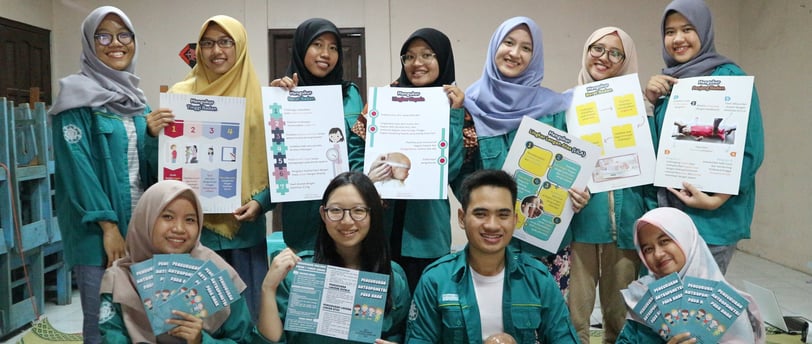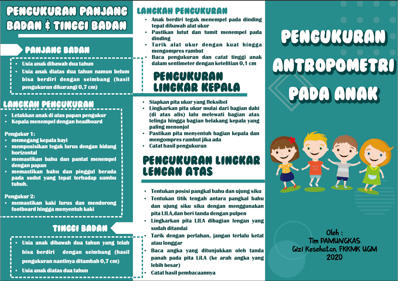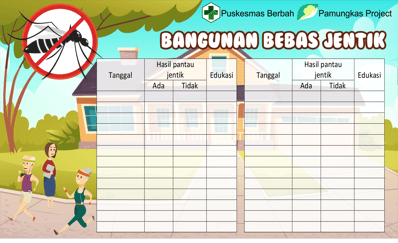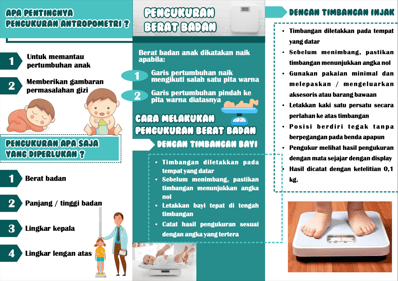PAMUNGKAS (Posyandu Anak Mandiri dan Unggul di Dusun Kemasan)
It is a nutrition project conducted in 2020 as part of the Nutrition Program Implementation course that I took during my undergraduate study.
PUBLIC HEALTH PROJECTS
Ulfa Ratriana
3/21/20244 min read


Our team members from top left-bottom right are Happy Nurlita O., Azmi Azizah, Ulfa Ratriana, Utami Yulaini A, Feby Nurul W, Ayudiva Rizky, Annisa Rizky U, Latifah Mahdiyati, Melissa Stephanie K, Muh. Mukhlasin F, and Alimah Hanan
About the Project
The Pamungkas project was implemented to create a healthier community in Kemasan Village by optimising the role of health cadres. The target groups for this program are Posyandu cadres, mothers of toddlers, and GELATIK (Gerakan Melawan Jentik) cadres. The program consists of training for Posyandu cadres in anthropometry measurement and Posyandu administration, classes for mothers of toddlers about Infant and Young Child Feeding (IYCF) and the Card for Health (KMS), as well as training for GELATIK cadres. GELATIK cadres consist of elementary school students who were appointed by Posyandu cadres.
For the Posyandu cadre training, cadres were given educational material regarding anthropometry related to measuring weight, body length or height, head circumference and arm circumference of children using lecture methods, video screenings, and discussions. Later on, Posyandu cadres also practised to perform anthropometric measurements. Posyandu administration training was conducted by making a Posyandu administration book to record the monthly children's anthropometric measurement data properly. Monitoring and evaluation were carried out using a Standard Operating Procedure (SOP) checklist when cadres take measurements during Posyandu activity.
Class activities for mothers of toddlers consist of socialisation on infant and child feeding and KMS (a book to monitor child growth. Mothers of toddlers are given education regarding IYCF practices in everyday life. The education provided relates to appropriate food according to the type, texture and age of the child. Then the KMS socialisation was also carried out to support the understanding of mothers of toddlers regarding child growth charts and the child's weight gain figures that must be achieved every month as stated in the KMS. Monitoring and evaluation were carried out online by asking what type of food body the mother uses when giving food and what the texture of the food is. The selection of mothers who will be contacted online is done randomly.
GELATIK cadre training will initially be carried out using videography media and playing games about mosquito larvae which have been adapted to material from the Community Health Center. However, because of the COVID-19 outbreak, the educational activities of GELATIK cadres were shifted to distributing posters containing material regarding handling mosquito larvae. Monitoring and evaluation were not able to be done due to the COVID-19 pandemic which caused project termination.
Objectives and Results
Increase the knowledge of Posyandu cadres regarding anthropometric measurements in the form of height/length, body weight, and upper arm circumference according to standards as indicated by an increase in cadre pre-test to post-test scores of at least 20% of the total score.
Result: Posyandu cadre training regarding anthropometric measurements was carried out on February 29 2020. The total attendance of participants was 11 people out of 16 invited. The pre-test and post-test results showed that 9 people's scores increased > 20% and 2 people's scores remained the same (no increase). Therefore, the objective was not reached.
Increasing the knowledge of mothers of toddlers regarding IYCF that is appropriate for children as shown by an increase in the pre-test to post-test scores of mothers of toddlers and cadres by 20% of the total score.
Result: socialisation about IYCF and KMS was carried out to mothers of toddlers on March 14 2020, attended by 35 mothers out of 60 invited. The pre-test and post-test results showed that the results of the 19 participants who completed both tests all increased > 20%. There were only 19 participants who completed the pre-test and post-test because some participants went home before the post-test session. Therefore, there was an increased score in 19 participants who completed both tests.
Improve cadres' skills regarding anthropometric measurements in the form of height/length, body weight, and upper arm circumference which is characterized by accuracy and reliability of inter-observer measurements of at least 50%.
Result: The assessment of cadre skills through monitoring and evaluation at the Posyandu on March 8, 2020, was hard to do because most of the cadres arrived late at the Posyandu. Therefore, at the beginning, our team carried out anthropometric measurements before the cadres took over the role. Based on the observations made, there were still many cadres who had not carried out measurements according to SOP, such as errors in reading TB measurements and not minimizing clothing when weighing the weight of toddlers which can result in bias.
Improve the skills of mothers of toddlers in making appropriate MP-ASI for children and being able to read KMS correctly.
Result: Monitoring and evaluation has not yet been carried out as the project terminated due to the COVID-19 pandemic.
Improving cadres' understanding and skills regarding Posyandu data administration is characterized by increasing data completeness by at least 20%.
Result: monitoring-evaluation of data completeness has not been conducted, only limited to observations of data recording during the Posyandu event. Posyandu cadres have filled in the data properly in the table according to the standard format provided by Community Health Care (Puskesmas).
Increase GELATIK cadres' understanding of how to properly monitor mosquito larvae and family education skills.
Achievements: Training and monitoring-evaluation activities for Gelatik cadres have not been implemented.
Even though this project had to be terminated earlier due to the COVID-19 pandemic, we got valuable lessons during the project planning and implementation that can be implemented for future projects.
Here are some media produced for the project:






